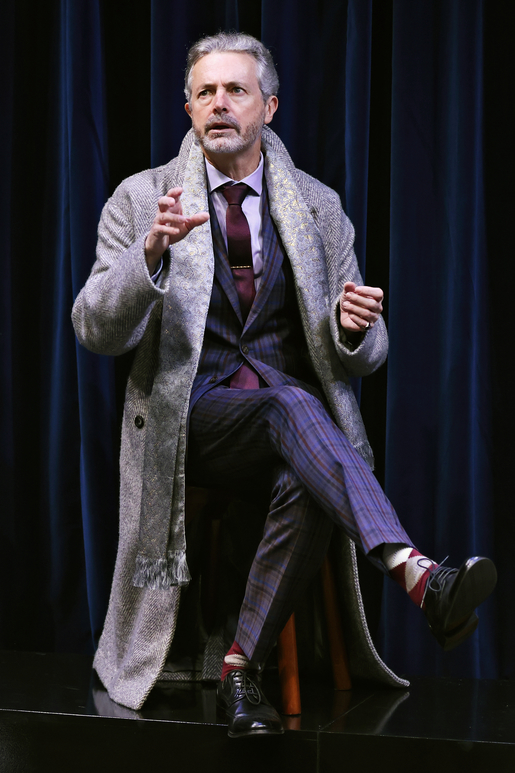Ensemble Theatre, March 9
7/10
The curse of genius is having to rub up against more mediocre minds. That’s why genius and irascibility are twisted together in the character of Isaac Newton, to form the hook on which David Williamson hangs his 2018 play. Williamson has seldom strayed far from either Australia or the present in his writing, and you sense his deep pleasure in this late-career work giving voice to one of the most stupendous minds ever to grapple with mathematics, physics and astronomy, while sculpting a drama around the writing of Newton’s revolutionary book Philosophiae Naturalis Principia Mathematica.
Not only did Newton have the vaulting imagination to see that gravity might apply to planetary systems as much as to falling apples, he invented a new form of mathematics (calculus) to prove it. He completed his work in ferociously vindictive competition with fellow mathematician Robert Hooke, while urged on by Edmund Halley, after whom the comet is named.

Tempering these warring factions are Halley’s wife, Mary, and the benign elder statesman of the Royal Society, Sir Christopher Wren, while King Charles II just wants his lads to come through with the goods to lend him bragging rights in Europe.
Conceptually the work is rather Stoppardian, but where Stoppard would have spent more time investigating the maths and physics, Williamson is more interested in the rough and tumble of intellectual jealousy and marital strains, while still delighting in the brain power parading the stage at his disposal, and cleverly shaping his obstacle course of a plot.
Like Janine Watson’s production, the play is both enchanting and imperfect. Sometimes a single performance lights up a theatre like a lone candle can a dinner table, and Sean O’Shea revels in Williamson’s ripest wit as King Charles, flamboyantly and dismissively striding about like some Italian fashion impresario. The play is never stronger than when he rules the stage.
Gareth Davies successfully elevates his Newton to a rarefied zone above the humdrum clamour of humanity – except when it comes to putting one over on Hooke. Together with costume designer Hugh O’Connor, Watson and Davies have made Newton something of an eccentric hippy, in keeping with Williamson’s depiction of the way he customised Christianity to suit his needs.

Less convincing are the domestic scenes between Mary and Edmund Halley – the only times the dialogue becomes confused as to whether it’s trying to hint at the late 17th century, or nestle unassumingly in modernity. Violette Ayad’s Mary may be much cleverer in worldly and emotional matters than her cerebral husband, but their scenes feel contrived, and this is not helped by Rowan Davie overplaying Halley. The intention was right: to create a man of boundless enthusiasm, capable of withstanding Newton’s patience-testing intractability and Hooke’s icy winds, but Davie could simmer more and boil less.
Sam O’Sullivan lends an urbane layer to the good and kind Wren, and plaudits go to understudy Claudia Ware for stepping into Hooke’s shoes at the last moment. The role, though, would benefit by Hooke being more multifaceted than just the villainously self-centred bane of Newton and Halley’s lives. Jemwel Danao completes the cast in four minor roles, including the generous-spirited Isaac Barrow, Newton’s Cambridge professor.
Watson fully realises the exceptional craft of Williamson’s fluid scene transitions, although (in a play partially about the laws of motion), there could have been greater stillness at the core of the staging. Nonetheless it’s a worthy production of a play that animates the pivotal interaction between some truly fascinating people.
Until April 23.